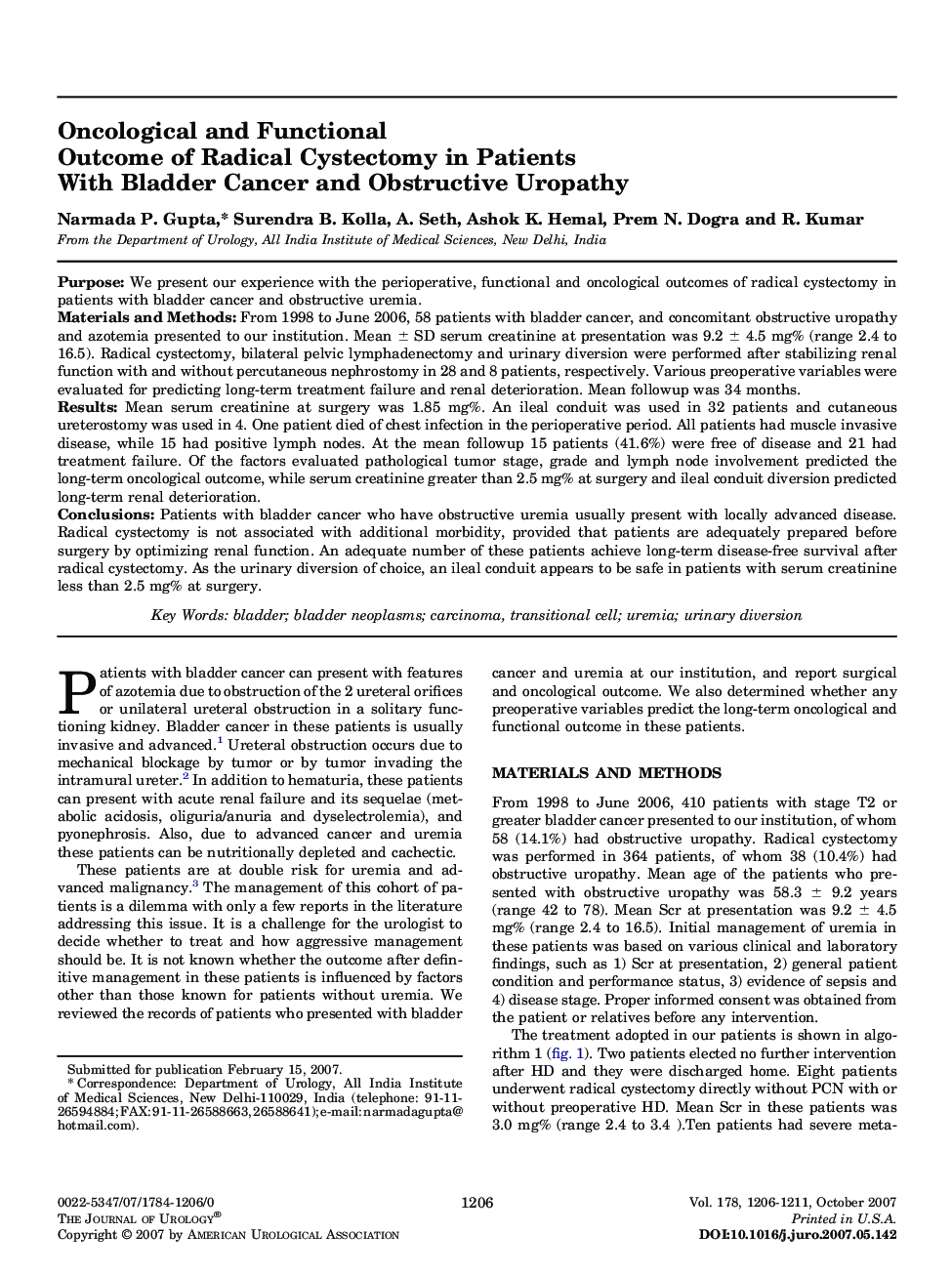| کد مقاله | کد نشریه | سال انتشار | مقاله انگلیسی | نسخه تمام متن |
|---|---|---|---|---|
| 3875587 | 1599002 | 2007 | 6 صفحه PDF | دانلود رایگان |

PurposeWe present our experience with the perioperative, functional and oncological outcomes of radical cystectomy in patients with bladder cancer and obstructive uremia.Materials and MethodsFrom 1998 to June 2006, 58 patients with bladder cancer, and concomitant obstructive uropathy and azotemia presented to our institution. Mean ± SD serum creatinine at presentation was 9.2 ± 4.5 mg% (range 2.4 to 16.5). Radical cystectomy, bilateral pelvic lymphadenectomy and urinary diversion were performed after stabilizing renal function with and without percutaneous nephrostomy in 28 and 8 patients, respectively. Various preoperative variables were evaluated for predicting long-term treatment failure and renal deterioration. Mean followup was 34 months.ResultsMean serum creatinine at surgery was 1.85 mg%. An ileal conduit was used in 32 patients and cutaneous ureterostomy was used in 4. One patient died of chest infection in the perioperative period. All patients had muscle invasive disease, while 15 had positive lymph nodes. At the mean followup 15 patients (41.6%) were free of disease and 21 had treatment failure. Of the factors evaluated pathological tumor stage, grade and lymph node involvement predicted the long-term oncological outcome, while serum creatinine greater than 2.5 mg% at surgery and ileal conduit diversion predicted long-term renal deterioration.ConclusionsPatients with bladder cancer who have obstructive uremia usually present with locally advanced disease. Radical cystectomy is not associated with additional morbidity, provided that patients are adequately prepared before surgery by optimizing renal function. An adequate number of these patients achieve long-term disease-free survival after radical cystectomy. As the urinary diversion of choice, an ileal conduit appears to be safe in patients with serum creatinine less than 2.5 mg% at surgery.
Journal: The Journal of Urology - Volume 178, Issue 4, October 2007, Pages 1206–1211